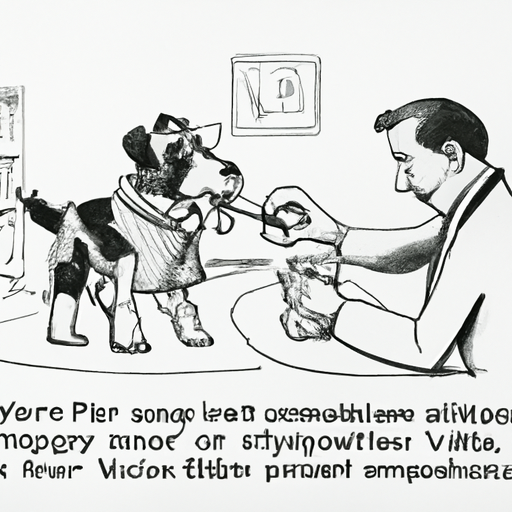Pyometra is a severe infection that can affect female dogs. It’s a condition that requires immediate attention as it could be life-threatening if not managed promptly and correctly. As a caregiver, your role is pivotal in ensuring the health and wellbeing of your furry friend. In this write-up, we will focus on the antibiotics used to treat pyometra in dogs.
H2: Understanding Pyometra
Firstly, you need to understand what pyometra is. Pyometra is a uterine infection that typically occurs in unspayed female dogs. It can lead to the accumulation of pus inside the uterus, causing the dog to become seriously ill. The symptoms may include increased thirst, frequent urination, loss of appetite, and lethargy. If you notice these symptoms, it’s crucial to get your pet to a vet immediately.
H2: The Importance of Antibiotics in Pyometra Treatment
Antibiotics play a crucial role in the treatment of pyometra. They are used to control the infection and prevent it from spreading. While surgery is often the most effective treatment, antibiotics can be an essential part of pre-surgical and post-surgical care.
- Pre-surgical care: Antibiotics are used to stabilize the dog’s condition before surgery.
- Post-surgical care: They are used to prevent any potential infections after surgery.
H2: Common Antibiotics Used in Pyometra Treatment
Here are some of the commonly used antibiotics for treating pyometra in dogs:
- Amoxicillin: This is a broad-spectrum antibiotic used to treat various infections, including pyometra. It’s usually administered orally.
- Cephalexin: This antibiotic is effective against gram-positive and some gram-negative bacteria. It’s also typically given orally.
- Metronidazole: This antibiotic is especially effective against anaerobic bacteria and is often used in combination with other antibiotics.
| Antibiotic | Mode of Administration | Function |
|---|---|---|
| Amoxicillin | Oral | Broad-spectrum antibiotic |
| Cephalexin | Oral | Effective against gram-positive and some gram-negative bacteria |
| Metronidazole | Oral or Injection | Effective against anaerobic bacteria |
H2: The Role of the Caregiver in Pyometra Treatment
As a caregiver, your role is crucial. You need to ensure your pet receives its medication on time and in the right dosage. Keep a close eye on your dog’s behaviour and symptoms. If you notice any changes, contact your vet immediately.
H2: Final Thoughts
Pyometra is a serious condition, but with prompt treatment, many dogs recover fully. As a caregiver, your vigilance and care can make a significant difference in your pet’s recovery.
FAQ Section
Q1: Can pyometra be prevented?
A1: Yes, spaying your female dog can prevent pyometra.
Q2: Can antibiotics cure pyometra?
A2: Antibiotics can help control the infection, but surgery is usually necessary for a complete cure.
Q3: How long will my dog need to take antibiotics?
A3: The duration depends on the vet’s prescription, but it’s usually for several weeks.
Q4: Can male dogs get pyometra?
A4: No, pyometra is a condition that affects the uterus, so only female dogs can get it.
Q5: What should I do if my dog refuses to take the antibiotic?
A5: Consult with your vet. They may suggest alternative methods or different medications.



